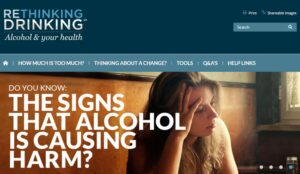Alcohol-Related Liver Disease on the Rise

The easiest way to prevent alcohol-related liver disease is to moderate alcohol consumption
According to a new study by the Centers for Disease Control and Prevention (CDC), alcohol-related liver disease is on the rise. Alcohol-related liver disease is also the leading cause of death from excessive drinking. Alcohol-related deaths have increased over the past 20 years. Notably, there was a 29% increase from 2019 to 2020, attributable to the COVID-19 pandemic. There was a 39% increase in alcohol-related liver disease during that time.
Alcohol-Related Liver Problems
Heavy use of alcohol causes alcohol-related liver disease. The liver’s job is to filter waste from the body and break down alcohol. If you drink more than it can process, the liver can lead to liver disorders, dysfunctions, and failure. The following are the stages of the disease:
- Steatosis or Alcoholic Fatty Liver – Fat accumulates in the liver cells, which leads to an enlarged liver. The most common alcohol-related liver problem is fatty liver. There may be no symptoms at this stage. Symptoms may include discomfort on the right side of the abdomen, weakness, or weight loss.
- Alcoholic Hepatitis – Inflammation of liver cells, death of liver cells, and potential scarring. Symptoms of hepatitis and cirrhosis are shared, including fever, weakness, nausea and vomiting, abdominal discomfort, yellowing of skin and eyes, and appetite loss.
- Alcoholic Cirrhosis – Irreversible liver damage, scarring, and potential liver failure.
Preventing Liver Disease
The best way to prevent alcohol-related liver disease is to drink alcohol in moderation or within the Guidelines established by the National Institute on Alcohol Abuse and Alcoholism (NIAAA). For more information on moderating alcohol consumption click the links below.
Damp or Dry Lifestyle? The Trend Toward Sobriety
Rethinking Drinking – Alcohol and Your Health
Sober Curious – Does Moderation Management Work?
If you or a loved one are struggling with an alcohol or drug addiction, eating disorder, or mental health condition, don’t wait to change your life. Click the link below for information or admissions:






